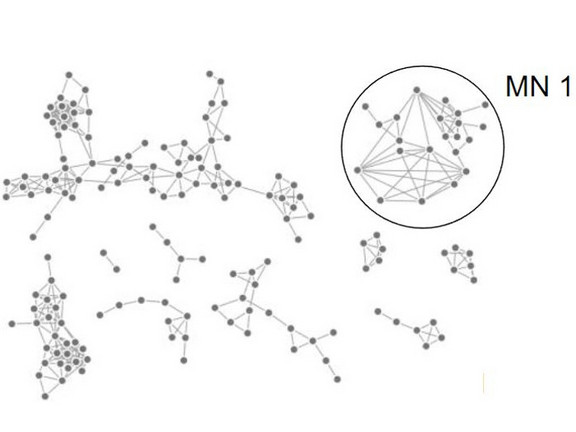Detailseite für das News-Plug-In auf der Startseite
Two new publications have been published in collaboration with Prof. Katrin Rosenthal (Constructor University) and Prof. Markus Nett (TU Dortmund University).

“Molecular Networking-Guided Discovery of Kyonggic Acids in Massilia spp.”
“Fluent Integration of Laboratory Data into Biocatalytic Process Simulation Using EnzymeML, DWSIM, and Ontologies.” in Processes
"Molecular Networking-Guided Discovery of Kyonggic Acids in Massilia spp." in European Journal of Organic Chemistry Till Steinmetz and his co-authors used mass spectrometry-based molecular networks to perform the first comprehensive analysis of the secondary metabolome of Massilia species. The species with the most promising secondary metabolites were selected using the molecular networks and cultivated on a large scale. Five metabolites were obtained after purification in milligram quantities. Structural elucidation revealed a cyclic dipeptide and four acylamino acids related to thalassotalic acid C from the marine bacterium Thalassotalea sp. The four kyonggic acids obtained from Massilia inhibit the enzyme tyrosinase. This study demonstrates the importance of mass spectrometry-based molecular networks in the discovery of new bioactive natural products.
"Fluent Integration of Laboratory Data into Biocatalytic Process Simulation Using EnzymeML, DWSIM, and Ontologies."in Processes Alexander S. Behr and his co-authors develop a new method for rapid screening of reaction parameters in flow reactors. A novel workflow with digital image processing (DIP) was developed to quantify product concentrations and the use of structured data acquisition with EnzymeML tables in combination with ontology-based semantic information. A major advantage of the method is the fast and smooth data integration into a simulation tool for kinetics evaluation. An important finding of the study is that a flexibly adaptable ontology is essential for FAIR (Findability, Accessibility, Interoperability, Reusability) data processing.







